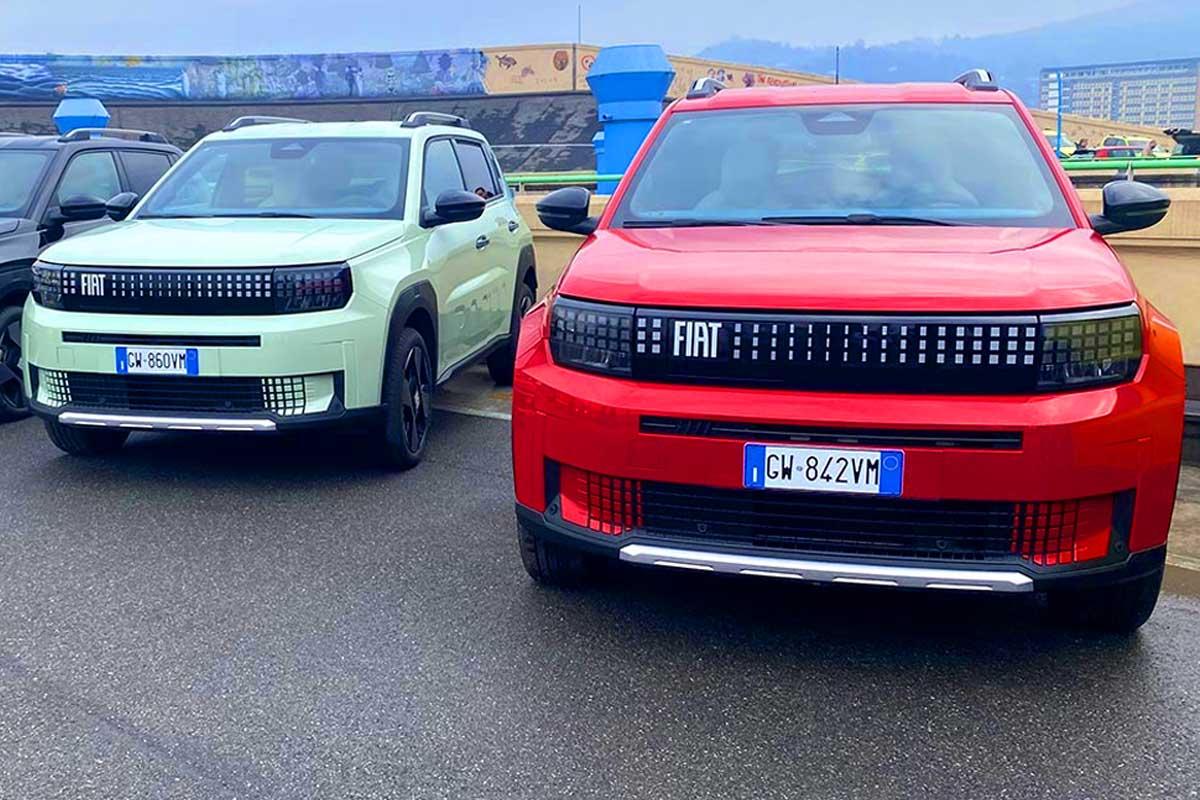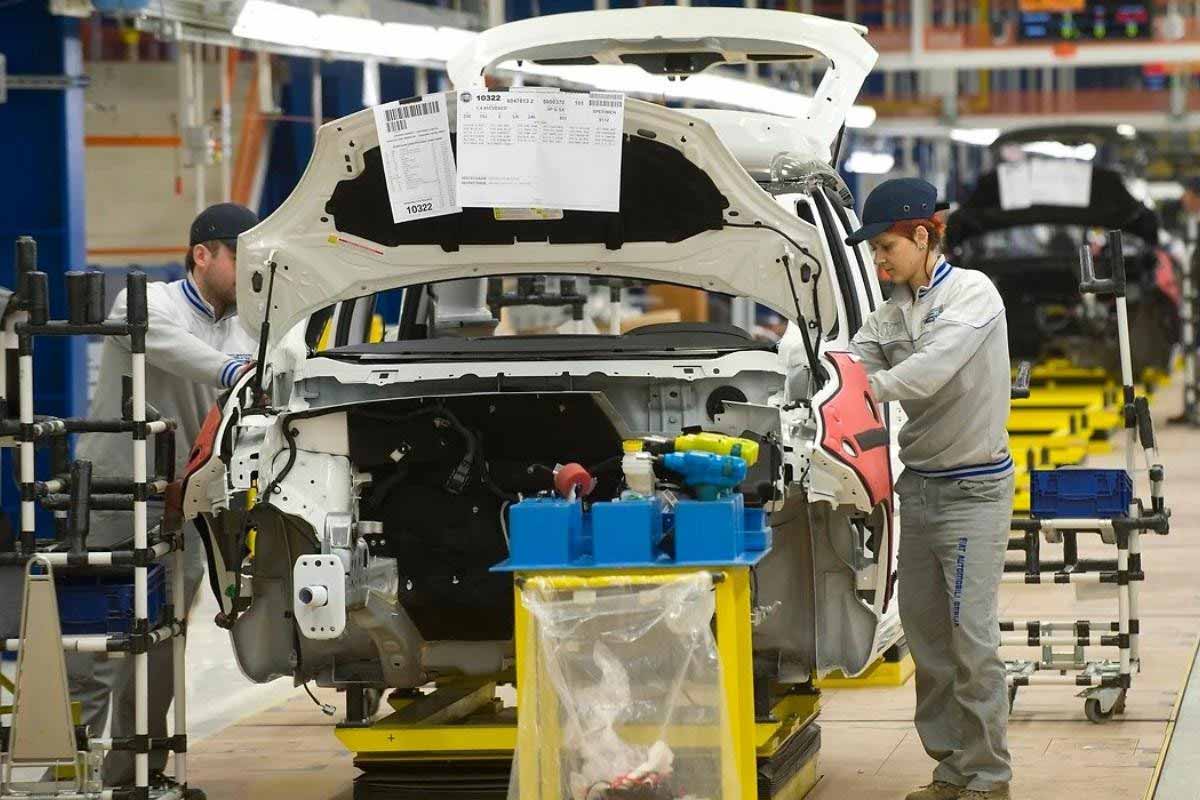
For months now, the Kragujevac plant in Serbia, where the new Fiat Grande Pandahas made headlines for its difficulties in achieving a production rate worthy of the model's commercial success. After sending Italian workers as reinforcementsthen their forced return due to administrative errorsa new stage is about to begin: the imminent arrival of hundreds of foreign workers from... Nepal and Morocco.
800 foreign workers expected in Kragujevac
According to AutoKlub, relaying a statement by a local Kragujevac councillor, around 800 workers from Nepal and Morocco are expected to be hired at the Stellantis plant in the near future. A striking figure, given that the town has almost 9,000 unemployed.
For the unions, the reason is clear: the salaries proposed by Fiat are not enough to attract locals. Jugoslav Ristić, former union leader and president of the Nova svetlost association, puts it bluntly:
"People don't want to work for this wage because they can't survive on it. That's why we call on workers from poorer countries, like Nepal or Morocco."
Low wages keep Serbs away
Today, a worker in Kragujevac earns around 70,000 dinars a month, or €597, slightly above the local minimum wage, but well below the Serbian average of €920. By working every Saturday, a worker can hope to climb to 90,000 dinars (€768), but at the cost of working well over 40 hours a week.
By way of comparison, the Italian workers sent to reinforce the company were paid almost €100 a day, i.e. almost five times as much.
The contrast is such that many local workers prefer to leave the Fiat plant after only a few days. As Goran Milić, president of the regional metalworkers' union, sums up:
"The workers hired last a few days and then leave, probably because of the low wages."
Why Nepal?
The choice of Nepal is not insignificant. In this country of 27 million inhabitants, over half the population lives on less than 1.25 $ a day. For these workers, a salary of €500 to €600 in Serbia already represents a major opportunity. Stellantis reportedly plans to offer them, in addition to a salary, two meals a day and accommodation valued at €100 a month.
Initially, foreign workers were to be taxed at an advantageous rate (only 10 % in taxes), but this measure was rejected by the Serbian government, which would have slowed down the first recruitments.
The Fiat Grande Panda, a promise still under threat

The paradox is cruel. The Fiat Grande Panda is supposed to be Fiat's popular new car in Europe: neo-retro design, attractive price, accessible electrification. Since February, more than 15,000 orders have been received and deliveries begin to accelerate. But the industrial reality remains fragile.
Official target: 500 vehicles per day. Current reality: only 150 to 180 units, despite the opening of new production stations. Lead times are skyrocketing: several months' waiting for hybrid versions, even though Stellantis is banking on them to attract a broad customer base.
A battered image for Fiat and Stellantis
By relying on low-cost foreign labor, Stellantis is exposing itself to increasing criticism. How can the company justify recruiting workers 6,000 kilometers away, when thousands of unemployed people live close to the plant? For the unions, the answer is simple: Fiat refuses to pay decent wages.
"If Fiat paid €1,000 a month, it would find workers without a problem," says Ristić.
Behind the Fiat Grande Panda, an entire industrial policy is at stake: that of a Europe that wants affordable cars... but turns a blind eye to production conditions.
Wow, Stellantis doing their best to mess this up! How can Renault produce in France (not a cheap labor economy) & sell the R5 at a profit, and yet Fiat can't pay decent wages to their staff in Kragujevac and make a profit. For comparison Italian price : R5 €25k, GP BEV €24k
It's a shame that Stellantis doesn't pay Serbian workers decent wages.
This group is making more mistakes by the day, and Fiat's image is taking a hit in this story. I have the impression that Stellantis is becoming ingerable.
Lamentable yet again and Tavares still at large with his stolen millions.
What's Tavares got to do with it?
It will soon be a year since Stellantis took over the helm.
If this article is true, it's all over for Fiat Europe. They're making mistake after mistake, the clientele has long since gone, there was a small chance of regaining a few sales, but the botched launch of this strategic vehicle gives us no hope. And the 500 diesel without an automatic gearbox, that's a foregone conclusion. Sad.
Con la morte di Marchionne finisce l'era di chi amava costruire auto fatte bene con designer italiani e motori italiani ....se va bene venderanno tutto , se va male chiuderanno e fine . Non ci sono alternative
There isn't much competition for this model, but it's true that management has completely missed the mark with this launch. All that's left is to open our eyes and pay the Serbians properly (and hope that the political climate doesn't deteriorate any further). If I were Olivier François, I'd try to solve this problem realistically, instead of hiring underpaid Nepalese...
Senza voler denigrare nessuno a priori, ma non credo che i Nepalesi possano avere un bagaglio culturale tecnico per garantire una qualità ottimale. Spero per che acquisti la nuova Panda non debba pentirsi.
Another "excellent" idea, hiring anyone to build anything in a country in near insurrection, well done Fiat.
Se los van a comer con papas... Tengo un Panda mkIII fabricado en Italia: he tenido coches pero este es con diferencia el más barato que compré y EL DE MAYOR CALIDAD EN SU FABRICACIÓN. Los materiales son los que son, pero su montaje y ajuste es excelente... dudo mucho que la basura que producen ahora en Marruecos vaya a llegar a ese nivel (basta ver a la competencia que también fabrica allí).
Para ellos... gracias Europa por " regalarnos " basura ecológica importada.
La famiglia Agnelli (ora gestita da Elkann) ha sempre sfruttato sia l'Italia ( con i finanziamenti dello Stato) che i suoi lavoratori (ricordate i treni che partivano dal Sud carichi di poveracci alla volta di Torino?). Ma allora lo faceva in un modo decente. Ora stiamo prendendo la gente per fame. Roba da codice penale. E io dovrei acquistare una macchina prodotta da un montanaro dell'Everest? Ma manco sotto la minaccia di morte! Per me possono pure chiudere e dedicare le loro ingenti finanze ad altri investimenti. Questi signori di industrie non capiscono nulla!
👏👏👍 hai perfettamente ragione. Vergogna italiana,questi imprenditori che abbiamo finanziato una vita!!!
Hai ragione sono dei ladri e questi Elkann sono pure i peggiori, uno drogato, l'altro senza dignità e onore.
Una famiglia da schifo tanto che sono anni che si combattano madre contro figli per l: eredità del vecchio Avvocato...che drogato pure lui ma almeno aveva una visione imprenditoriale.
The word Stellantis comes from the Latin "stello", meaning to shine with stars.
The idea is to symbolize a large global group "guided by the stars" and looking to the future.
I'm speechless
E' vergognoso, non si riesce a pagare salari decenti ma si vende a prezzi di mercato, al peggio non c'è mai fine, ma quanto vogliono guadagnare su ogni macchina, e ora cercano gente da sfruttare, meglio comprare altro che di sicuro sono più affidabili sperando che vengano prodotte senza sfruttamenti di manodopera
È ovvio che la maggior parte dei ricavi va agli azionisti, quelli grandi però, è solo a loro che devono rendere conto, a stellantis non gliene frega niente di fare dei ricavi normali, il massimo "deve" andare sempre agli azionisti, va da sé che meno spendono con la mano d'opera più guadagnano anche gli azionisti. Cmq altri costruttori fanno auto di qualità più alta allo stesso prezzo. Siamo poi sicuri che i nepalesi siano mano d'opera specializzata? Idem i marocchini!
Povera FIAT un marchio che una volta c' era un detto ( con pinza e cacciavite e filo di ferro a presso la macchina ti porta sempre a casa ) oggi con tutti quelli risparmi sulla manodopera, e materiali scadenti, nemmeno con una officina a presso le macchine ti portano a casa. Chi si fida più del marchio FIAT. Forse il vecchio Agnelli ( quello che l'ha fondato la FABBRICA ITALIANA AUTOMOBILI TORINO ) no quello che è morto da qualche anno.... forse quello Agnelli sarebbe in grado di creare veicoli competitivi. POVERA ITALIA DOV'È FINITA.
Schade, kann man das Auto nicht mit Arbeitern bauen, die dies wollen und auch können? Wohl völlig unqualifizierte Kräfte aus Nepal zu holen, ist, abgesehen vom menschlichen Leid, wohl eine Schnapsidee.
So wird es nichts mit meinem dritten Fiat in 56 Jahren.
Dalle Stelle alle stalle!
Che riducano gli stipendi favolosi dei dirigenti e i dividendi per gli azionisti di spicco e paghino decentemente mano d'opera specializzata che hanno fatto scomparire da quando ci sono gli Elkann sembra che lavorino per farla fallire stellantis, che schifo ma che schifo aver fatto una fusione coi francesi che non vedono l'ora di fare fallire la parte italiana.
A parte il fatto che il cosiddetto successo della Grande Panda è una Fakenews, i dati dimostrano che non piace, è troppo cara, l'assemblaggio è fatto a spanne.... adesso sappiamo che gli operai serbi sottopagati non vogliono (GIUSTAMANTR) essere sfruttati! La soluzione? Cercare la povera gente dei paesi poveri disposta a lavorare x pochi dollari la settimana, questa è l'eredità del metodo Marchionne, manager/ schiavista tanto idolatrato dai padroni, tanto odiato dagli operai...... un esempio da non seguire!
Godo, spero falliscano in tempi celeri! È sempre stato facile fare gli imprenditori con gli aiuti statali, poi a conferma dell'incapacitá di chiunque abbia gestito e amministrato lì dentro, fin dal principio, sono arrivate palate di fango e letame. Mi spiace solo che siano (stati) associati ad un falso Made in Italy.
So where do europeans go to find work? Where is the European Parlament to help find a solution for the people of europe? Then the Europeans should not buy these cars. There is a lot to say and this problem is all over European countries.
Se assumi manodopera economica la qualità ne risente in modo proporzionale, l'elevato turnover degli addetti amplifica il problema (appena hanno imparato se ne vanno) e di conseguenza aumentano i costi. Ma l'etica non esiste più?
This is a bunch of lies. Serbian people are getting laid off because Nepal pays our government to bring their workers. Yeah sure, the wages could be higher but the unemployment rate is rising day by day here and it's all because our country has no use from us, financial wise, not small wages.